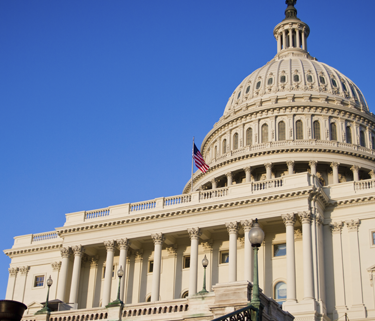Congress’s End-of-Year Legislation Includes Disability Priorities and Leaves Unfinished Business
As Congress wrapped its work for the year, disability advocates pushed for progress on a variety of priorities. Congress has now passed a package that includes some important victories but leaves others out.
One of the biggest wins is an extension of the Money Follows the Person program, which helps people transition out of institutions and nursing homes, and back to their communities.
The Money Follows the Person (MFP) program provides grants to states to transition Medicaid participants from institutions into the community. MFP has moved more than 107,000 seniors and individuals with disabilities out of these institutions and has helped 43 states and the District of Columbia improve access to home and community-based services (HCBS). Medicaid requires states to provide care in nursing homes, but HCBS is optional. The MFP program is then critical because it incentivizes investment in HCBS by providing federal funding for transitional services for individuals who wish to leave a nursing home or other institution. Congress has now extended it through 2027.
“This program makes it possible for more people with disabilities to change their lives, on their own terms. And it proves what people with disabilities and their families know – the opportunities for a life in the community, with the services to make it happen, are game changers. We will continue to relentlessly advocate for major investments in home and community-based services,” said Peter Berns, CEO, The Arc.
Other victories in the bill include:
- Creating a path for a ban on the use of electric shock devices for behavior modification on people with intellectual and developmental disabilities (IDD). The brutal treatment is widely recognized as cruel, harmful, and ineffective. Yet it’s still used at one institution in Massachusetts.
- Extending the requirement that states apply Medicaid’s spousal impoverishment protections to HCBS through 2027. A spouse shouldn’t have to live in poverty for their partner to receive services in the community.
- Expanding ABLE account eligibility. ABLE accounts are tax-advantaged savings accounts for individuals with disabilities. This legislation increases the age of disability onset to access an ABLE account from prior to age 26 to age 46, starting in 2026.
Congress’s action or inaction on certain issues creates unfinished business for The Arc and our advocates to rally around in 2023, including:
- No action to increase to SSI’s asset limits. Right now, people who get SSI can only have $2,000 in assets, and married couples can only have $3,000.
- Congress is ending important eligibility and funding improvements tied to the COVID-19 public health emergency. This means states may begin to remove ineligible people from their program starting April 1.
“It’s very disappointing that Congress didn’t take the opportunity to help lift people with disabilities out of poverty, by simply bringing the SSI asset limit out of the 1980s into this century. We will continue to push for this change in the New Year,” said Berns.








